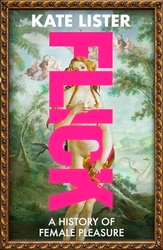- Books
- Series
- Authors
- Articles
Filters
Age
Publication Date
Format
Series
- A Commissario Brunetti Mystery (27)
- A DC Smith / Kings Lake Investigation Series (17)
- A Daisy Story (21)
- A Ladybird Book (28)
- A Puffin Book (102)
- Actiphons (52)
- Alex Cross (23)
- BBC Children's Classics (22)
- Baby Touch (54)
- Beatrix Potter Originals (21)
- Bluey (125)
- Brief Encounters (37)
- Bryant & May (16)
- Charles Paris Dramatisations (19)
- Charlie and Lola (16)
- DOCTOR WHO (99)
- Diary of a Wimpy Kid (25)
- Discworld Novels (51)
- Do You Know? (52)
- Doctor Who (46)
- Doctor Who Target Novels – Classic Era (20)
- Everyman's Library Barbreck (17)
- Everyman's Library CHILDREN'S CLASSICS (63)
- Everyman's Library CLASSICS (240)
- Everyman's Library P G WODEHOUSE (103)
- Everyman's Library POCKET CLASSICS (42)
- Everyman's Library POCKET POETS (121)
- Everyman’s Library Contemporary Classics (172)
- Extraordinary Lives (16)
- Falco (20)
- Francis Thriller (51)
- Gargoylz (16)
- Green Ideas (20)
- Hairy Maclary and Friends (20)
- Hey Duggee (119)
- Hot Wheels (17)
- How to Garden (22)
- In Their Own Words (23)
- Inspector Maigret (63)
- Jack Reacher (30)
- Jeeves & Wooster (20)
- Key Words (37)
- Key Words with Peter and Jane (36)
- Ladybird Audio Adventures (25)
- Ladybird Readers (178)
- Ladybirds for Grown-Ups (34)
- Learn with Ladybird (19)
- Learn with Peppa (102)
- Little Book of (31)
- Little Clothbound Classics (50)
- Magic Tree House (23)
- Meg and Mog (19)
- Middle School (17)
- My Secret Unicorn (20)
- Nick Stone (20)
- Pelican Books (58)
- Penguin Archive (90)
- Penguin Clothbound Classics (89)
- Penguin Essentials (71)
- Penguin Great Ideas (92)
- Penguin Great Loves (22)
- Penguin Little Black Classics (128)
- Penguin Modern (47)
- Penguin Modern Classics (1168)
- Penguin Modern Classics – Crime & Espionage (44)
- Penguin Monarchs (44)
- Penguin Readers (164)
- Penguin Science Fiction (17)
- Penguin Specials (41)
- Peppa Pig (345)
- Pocket Wisdom (22)
- Private (19)
- Puffin Classics (30)
- Puffin Clothbound Classics (17)
- Read It Yourself (186)
- Redwall (22)
- Richard Bolitho (30)
- Ross O’Carroll-Kelly (23)
- Stanley (19)
- Star Wars (88)
- Temperance Brennan (17)
- Ten Minutes to Bed (28)
- The Adams Family (29)
- The Cliffehaven Series (21)
- The DCI Ryan Mysteries (26)
- The Dragon Books (21)
- The Ladybird Expert Series (31)
- The News Quiz (27)
- The Oregon Files (17)
- The Originals (21)
- The Penguin English Library (87)
- The Roald Dahl Classic Collection (20)
- The Wardstone Chronicles (19)
- Topsy and Tim (34)
- Torchwood (20)
- Vintage Collector's Classics (40)
- Vintage Minis (43)
- Wexford (24)
- Who's in Your Book? (17)
- Women's Murder Club (19)
Imprint
- Allen Lane (130)
- Arrow (2598)
- Arrow (Young) (112)
- BBC Books (600)
- BBC Children's Books (224)
- BBC Digital (248)
- BBC Digital Audio (3100)
- BBC Physical Audio (55)
- Bantam (645)
- Bantam Children (24)
- Bantam Press (108)
- Black Lace (194)
- Black Swan (724)
- Black Swan Ireland (22)
- Bodley Head (116)
- BookShots Digital (86)
- C W Daniel (76)
- Century (118)
- Chatto & Windus (167)
- Childrens Classics (61)
- Corgi (1206)
- Corgi Childrens (519)
- Corgi Pups (34)
- Cornerstone Digital (501)
- Cornerstone Press (33)
- Definitions (Young Adult) (64)
- Del Rey (121)
- Do Books Audio (21)
- Doubleday (101)
- Doubleday Childrens (20)
- Ebury Digital (521)
- Ebury Edge (57)
- Ebury Press (1211)
- Ebury Press (Fiction) (207)
- Ebury Spotlight (99)
- Eden Project Books (22)
- Evermore (57)
- Everyman (683)
- Fern Press (15)
- Fig Tree (44)
- Hamish Hamilton (40)
- Hammer (24)
- Hardie Grant Books (UK) (446)
- Harvill (33)
- Harvill Press (89)
- Harvill Secker (91)
- Hutchinson (32)
- Hutchinson Heinemann (61)
- Inklore (51)
- Jonathan Cape (330)
- Ladybird (1881)
- Mainstream Digital (371)
- Mainstream Publishing (144)
- Merky Books (38)
- Michael Joseph (451)
- Nexus (98)
- Particular Books (81)
- Pelican (60)
- Penguin (9206)
- Penguin Audio (105)
- Penguin Business (71)
- Penguin Classics (3182)
- Penguin Life (188)
- Picture Corgi (32)
- Pimlico (293)
- Pop Press (108)
- Portfolio Penguin (53)
- Preface Publishing (37)
- Puffin (2422)
- Puffin Classics (149)
- Quadrille (926)
- RHCP Digital (412)
- Random House Books (52)
- Random House Business (114)
- Red Fox (582)
- Red Fox Classics (52)
- Red Fox Picture Books (98)
- Rider (492)
- Sandycove (24)
- Square Peg (110)
- Tamarind (41)
- Tanoshimi (25)
- Torva (32)
- Transworld Digital (459)
- Transworld Ireland (77)
- Vermilion (860)
- Viking (120)
- Vintage (3325)
- Vintage Children's Classics (79)
- Vintage Classics (1326)
- Vintage Digital (798)
- Virgin Books (505)
- Virgin Digital (493)
- WH Allen (124)
- Warne (116)
- William Heinemann (15)
- Windmill Books (324)
- Yearling (173)
- Yellow Jersey (134)
- Young Corgi (72)


























